Fix: Problem Ejecting USB Mass Storage Device on Windows
Do you have a problem ejecting a USB in Windows 10 or 11? Do you get the 'This device is currently in use' message? Here are 9 solutions to solve this problem.
Problem Ejecting USB Mass Storage Device. This device is currently in use. Close any programs or windows that might be using the device, and then try again.
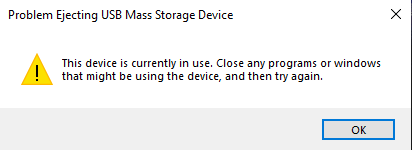
Close all programs
- Close all programs.
-
Try to safely eject your USB device.
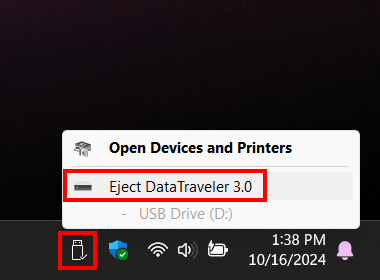
Refresh
- Right-click on your desktop.
-
Click on Refresh.
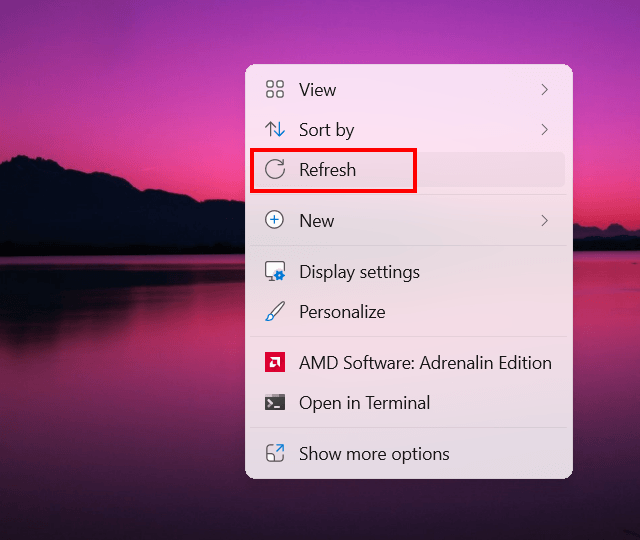
-
Try to safely eject your USB device.

Empty Recycle Bin
- Right-click on the Recycle Bin.
-
Click on Empty Recycle Bin.
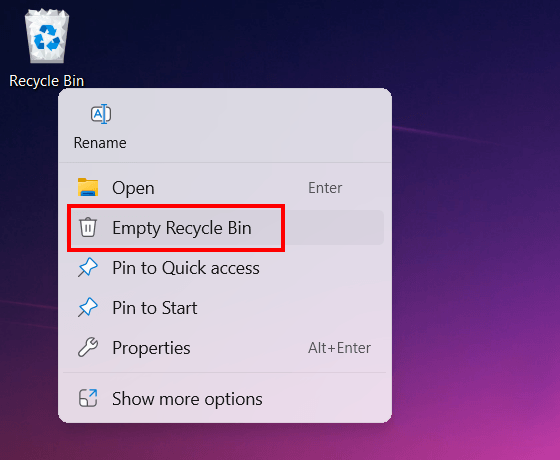
-
Try to safely eject your USB device.

Windows Task Manager
- Right-click on the Windows start menu button or taskbar.
-
Click on Task Manager.
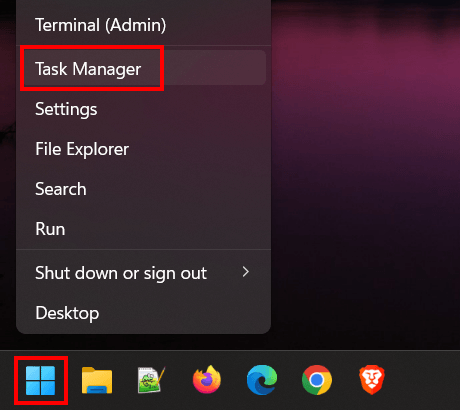
- In the Processes tab, you right-click on Windows Explorer.
-
Click on Restart.
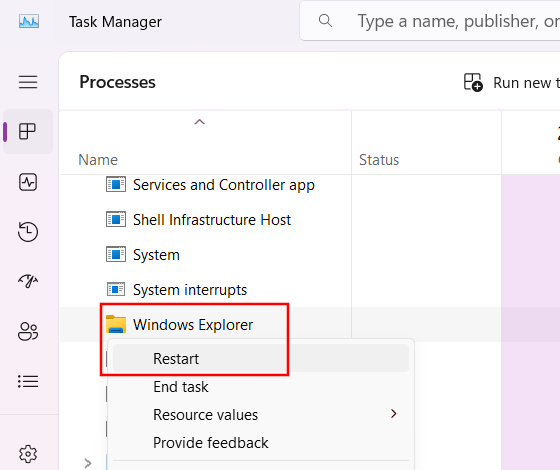
- Close Task Manager.
-
Try to safely eject your USB device.

Eject USB drive using the Settings app
- Right-click the Windows start menu button.
-
Click Settings.
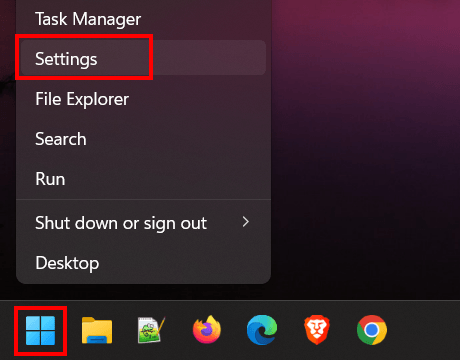
-
Click Bluetooth & devices in the left menu.
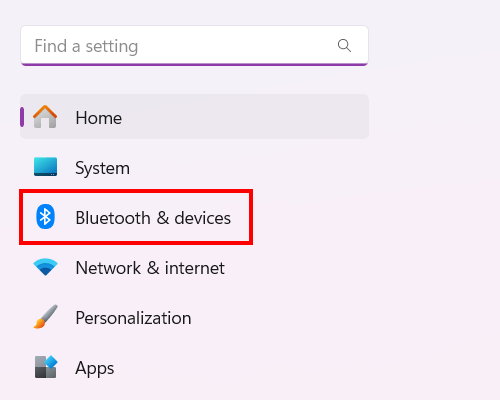
-
Click Devices.
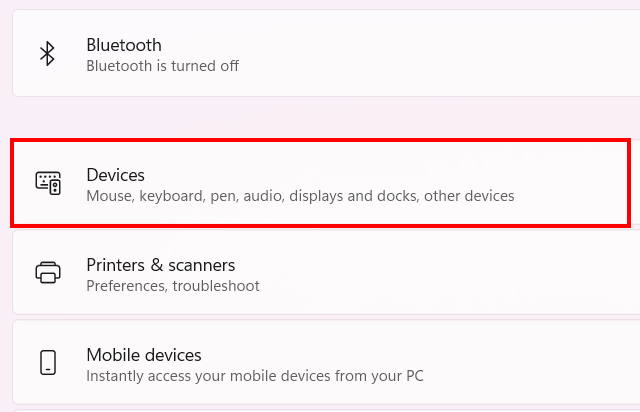
-
Click on the USB drive you want to eject to view options.
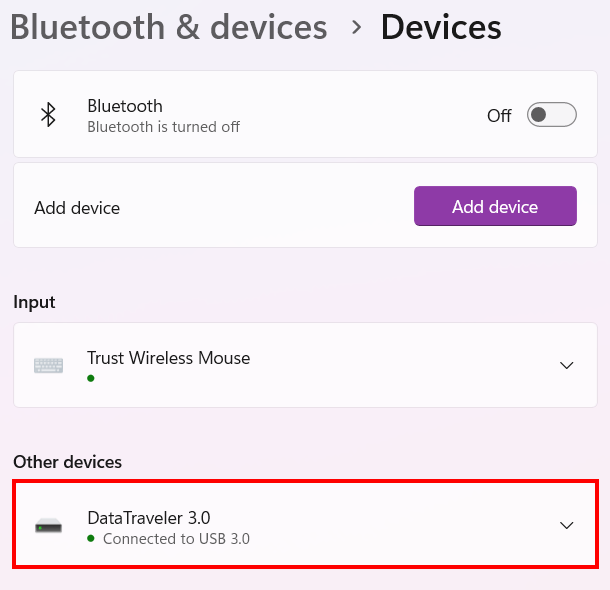
-
Click Remove.
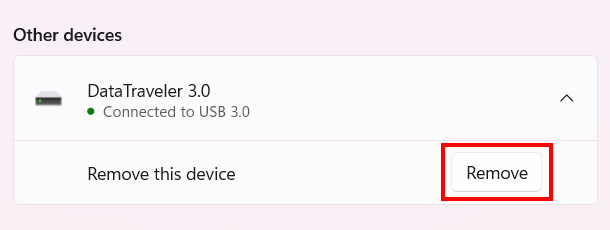
- Click Yes to confirm.
- Remove your USB drive.
Log out of your PC and log back on
Logging out of your PC will close all active files and programs, including those accessing the external USB drive. However, this process can be inconvenient and time-consuming, as you'll need to save and close everything manually. And after you log back into your PC, you'll have to open your files and programs again.
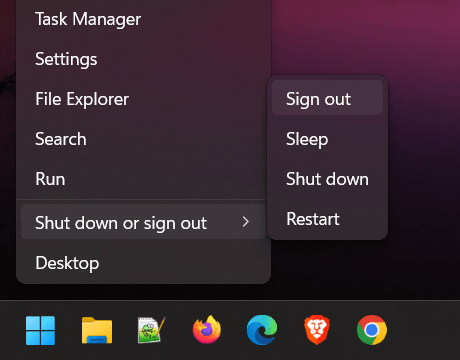
Restart PC
Most of the time, it's faster to restart your PC than to find a solution to the problem. However, this process can be inconvenient and time-consuming, as you'll need to save and close everything manually, wait for your PC to restart, log back on, and open your files and programs again.
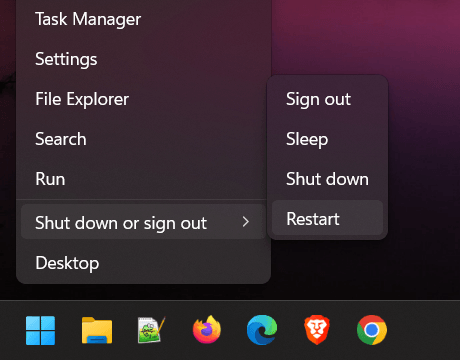
Device Manager 1
- Right-click on the Windows start menu button.
-
Click on Device Manager.
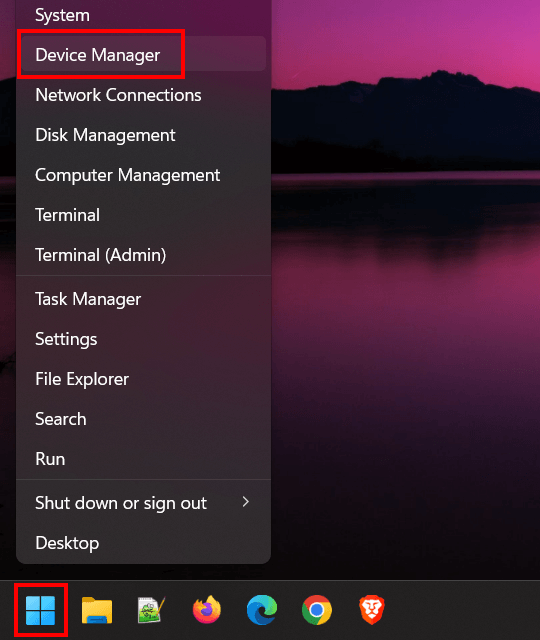
-
Double-click on Disk drives to expand.
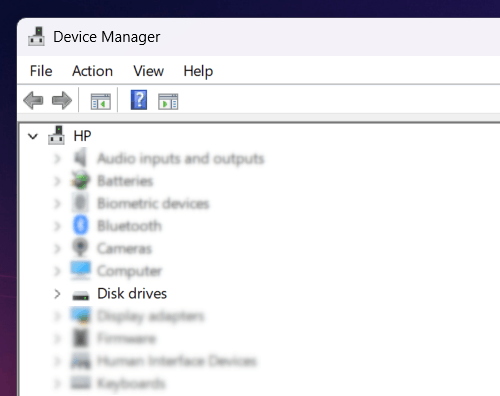
- Right-click on the USB drive you want to eject.
-
Click on Uninstall device.
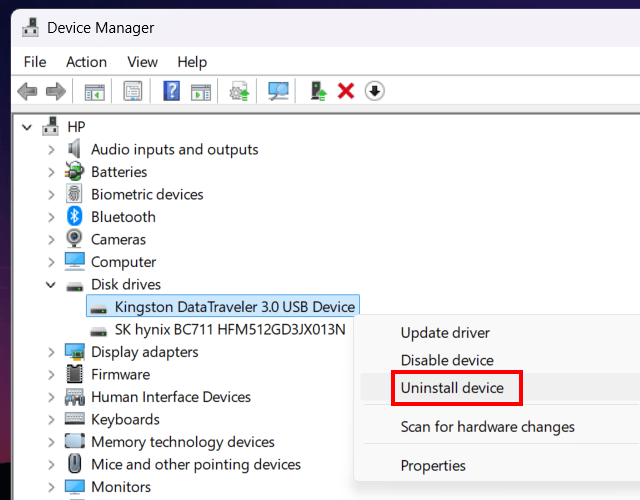
-
In the next window, you click on Uninstall.
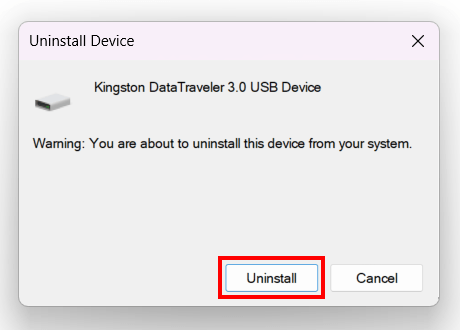
- When the uninstall process is complete, you can remove your USB device.
Device Manager 2
- Right-click on the Windows start menu button.
-
Click on Device Manager.

-
Double-click on Universal Serial Bus controllers to expand.
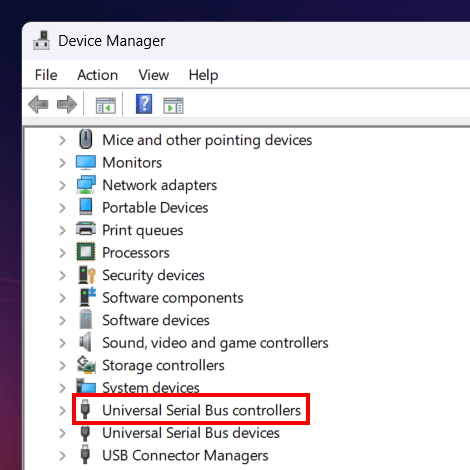
- Right-click on USB Mass Storage Device.
-
Click on Uninstall device.
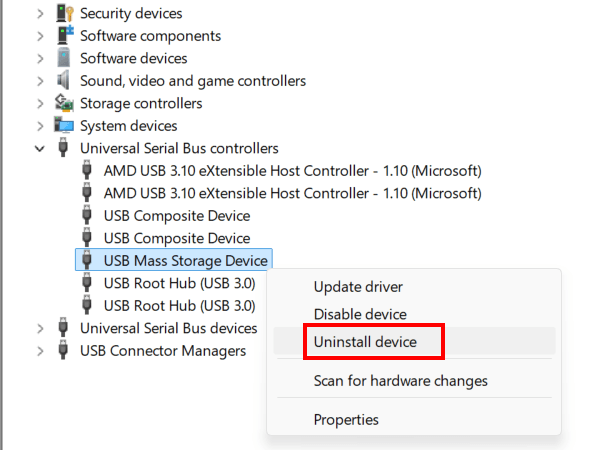
-
In the next window, you click on Uninstall.
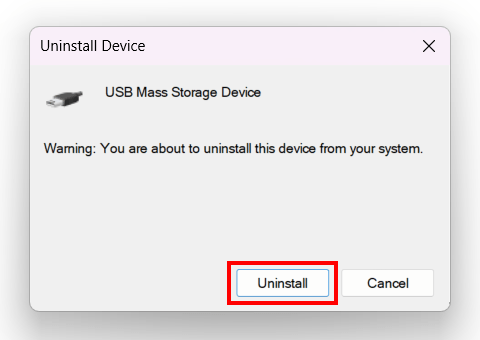
- When the uninstall process is complete, you can remove your USB device.
Related:
Fix: The file is too large for the destination file system
USB flash drive showing less space than actual? Here's a fix!
Fix: 'This folder is empty' on a USB drive on Windows 10 & 11